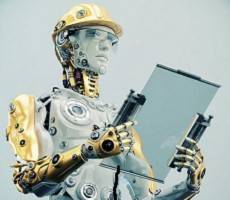January 28, 2017
Future of CRE + Workplace trends lists + Business leaders bad at managing people 0
 In this week’s Newsletter; from the latest issue of Work&Place which is out now, Antony Slumbers discusses the impact of technology on corporate real estate. Mark Eltringham presents the top five songs about office life and office furniture; and explains how the numskulls show why we need a better understanding of how people respond to their surroundings. We have a trawl through the annual list of workplace trends that appear this time of year; learn that flexible working hours help make the UK’s self-employed much happier than those in traditional employment; and discover why physical workspaces need to be designed to support the digital workplace. Two new reports reveal a shortfall in people management skills among current and future leaders; and why Barcelona’s iconic Agbar Tower is being deserted by its unhappy occupants. Download our Briefing, produced in partnership with Boss Design on the link between culture and workplace strategy and design; visit our new events page, follow us on Twitter and join our LinkedIn Group to discuss these and other stories.
In this week’s Newsletter; from the latest issue of Work&Place which is out now, Antony Slumbers discusses the impact of technology on corporate real estate. Mark Eltringham presents the top five songs about office life and office furniture; and explains how the numskulls show why we need a better understanding of how people respond to their surroundings. We have a trawl through the annual list of workplace trends that appear this time of year; learn that flexible working hours help make the UK’s self-employed much happier than those in traditional employment; and discover why physical workspaces need to be designed to support the digital workplace. Two new reports reveal a shortfall in people management skills among current and future leaders; and why Barcelona’s iconic Agbar Tower is being deserted by its unhappy occupants. Download our Briefing, produced in partnership with Boss Design on the link between culture and workplace strategy and design; visit our new events page, follow us on Twitter and join our LinkedIn Group to discuss these and other stories.































April 21, 2016
How and why Millennials are shaping the future of remote working 0
by Sara Sutton Fell • Comment, Facilities management, Flexible working, Workplace, Workplace design
(more…)